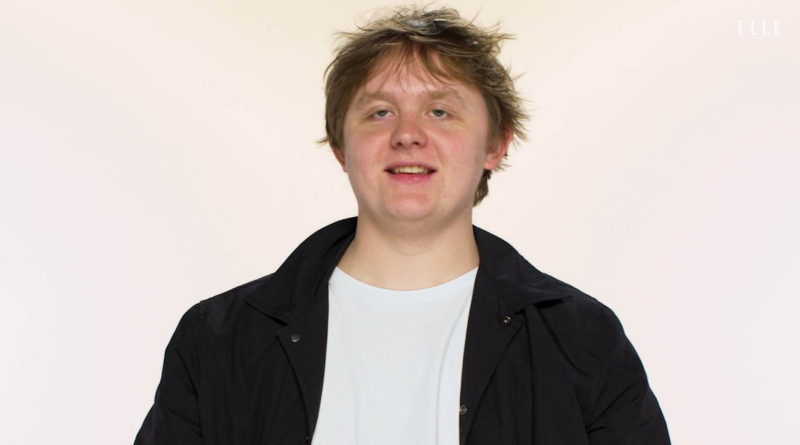<i>Abbott Elementary</i> Understands the Art of the Slow Burn
Spoilers below.
Throughout the fantastic second season of Abbott Elementary, I’ve been (quietly, off Twitter) praying that teachers Janine (Quinta Brunson) and Gregory (Tyler James Williams) stay in their separate classrooms. Perhaps not always—encounters in the cafeteria, gym, or teachers’ lounge remained essential—but regardless, distance was necessary to mitigate the risk of their chemistry. It takes a precise recipe to execute the will-they, won’t-they magic passed between Brunson and Williams week after week. They’re a Disney couple, after all: I was terrified they’d use up their pixie dust before anyone got around to flying.
Of course, the blessed reality of Abbott is that its creator understands this, and she knows how to ration. Brunson recognizes the temperamental nature of the episodic format she works in, and within that, the difference between employing a trope versus a cliché. A cliché is tired; at worst, it’s a gimmick. Conversely, a trope is reliable; when implemented with care, it works. And in the cherished case of Miss Teagues and Mr. Eddie, it is working.
More From ELLE

Before I’d even finished watching the advance screener for this week’s finale, “Franklin Institute,” my husband stopped me to ask the only obvious question heading into the episode: “Did they do it? Did they share their feelings?” He sounded both thrilled and petrified. And that, friends, is the delicious cognitive dissonance of the slow-burn romance: We want them to get together. Also, we don’t. If they get together, the adrenaline drops; that sweet, sweet tension turns into trust. Trust can work beautifully as the endgame for a sitcom couple (see: Jim and Pam, Leslie and Ben, Jess and Nick, Danny and Mindy), but it must feel earned. The slow burn is a respectful dues-payer, eternally adjusting its own dials for optimal performance.
And indeed, in “Franklin Institute,” after a visit to that romantic beacon known as the Franklin Institute, Janine and Gregory are finally on the same page about their schoolyard crush. But not in the way we might have wanted—which is, of course, exactly what we really wanted.
The episode begins with the teachers and students of Abbott embarking on their long-awaited field trip to the science museum, where Gregory tells Janine he’s thinking about staying in Philadelphia for the summer. But after a surprise conversation with her ex-boyfriend, Maurice—a good friend of Gregory’s, you might recall—Janine is unmoored. Earlier in the season, she and Gregory shared an unplanned kiss at the PECSA conference, one they eventually revealed to Maurice at the barbecue joint Bone Town. (I add this detail not because it’s relevant, but because any chance to unironically write the words “Bone Town” is not to be missed.) Maurice later tells Janine that choice was “selfish,” an accusation that rocks her tiny little body right to its bleeding heart.
She decides Maurice is right, and that the best way to avoid such selfishness again is to avoid Gregory himself. Throughout the Institute trip, she ices him out, twisting her lips at his jokes and rebuffing his attempts to engage. For guidance, Gregory turns to his colleague Jacob (Chris Perfetti), who instructs the former to be up-front with Janine. (“Everyone I like knows it,” Jacob says, referencing his boyfriend Zach and “Diego Luna, who’s seen my tweets.”)
It’s nearly lights out at the Franklin Institute at this point, and the kids are already dosing off by the time Gregory gets the nerve to pull Janine aside. He’s only able to say the words “I like you, Janine,” before the students burst from their Bluey sleeping bags shrieking in terror. The object of their horror? Not their teachers falling in love, but Mrs. Howard (Sheryl Lee Ralph) using a CPAP machine. Naturally, the fright fest is courtesy of Principal Ava (Janelle James); it was her earlier info-dump that convinced the children aliens exist, that they might look human, and that they’d need breathing equipment to survive Earth’s atmosphere. Mrs. Howard looks just enough like a gas mask-touting ET to scatter the students, leaving the teachers to chase them throughout the museum.
The panic finally allows Janine and Gregory a moment alone. Beside the human body exhibit (specifically, the heart—kudos to Brunson), the two teachers collide. “I like you, too,” Janine blurts. “Like, a lot.”
But the ensuing conversation is not the build-up to another passionate kiss; it’s not even the build-up to a methodical planning session addressing how they’d handle a workplace romance. Instead, Brunson digs in her heels. The scene slows, and with it the pace of Gregory and Janine’s impending courtship. Janine isn’t convinced the timing is right. She loves Gregory, but she’s afraid of losing him. The former tells the latter that if they were to start something, it would be—
“Real,” Gregory finishes. The weight of that promise is too much for Janine, especially as she wrestles with the discomfort of having hurt Maurice. She can’t risk doing the same to Gregory. If she’s going to be selfish—a relatively new concept to her—she needs to do it without the threat of a guilty conscience. No collateral damage. As she later admits to the documentary crew when the classes return to Abbott, she’s not ready for the “real” that a romance with Gregory would require.
This conversation at the Franklin Institute is gutting, but that’s what makes it such a brilliant move on Brunson’s behalf, especially in a comedy as light and nimble as Abbott. As an actress, she avoids a glance toward the camera, but as a creator we can be sure she’s winking at it. She knows exactly what we’re wondering at home: Is it time?! Her response is subtle but clear, echoing the character she plays: Not yet.
The art of the slow burn is the pleasure inherent in that “not yet.” It’s not a “no.” It’s a “just wait.” An “it gets better.” The slow burn is not, ultimately, a question but a promise. A promise is an indicator of trust in both your characters and your viewers; it’s a way of delivering goods to an audience you know will protect them. Delayed gratification might be an increasingly rare phenomenon in modern life, but it’s far from a lost cause. With a story crafted as tenderly as Brunson’s, the audience will stick around for as many episodes as it takes.
Like them, I’ll be here next season, and the one after that. I’ll keep watching every move between Janine and Gregory, pining—but not pushing—for that irrepressible moment when the alchemy aligns. You know the one. We’ve all felt it. It goes something like: Now.
Culture Writer
Lauren Puckett-Pope is a staff culture writer at ELLE, where she primarily covers film, television and books. She was previously an associate editor at ELLE.




